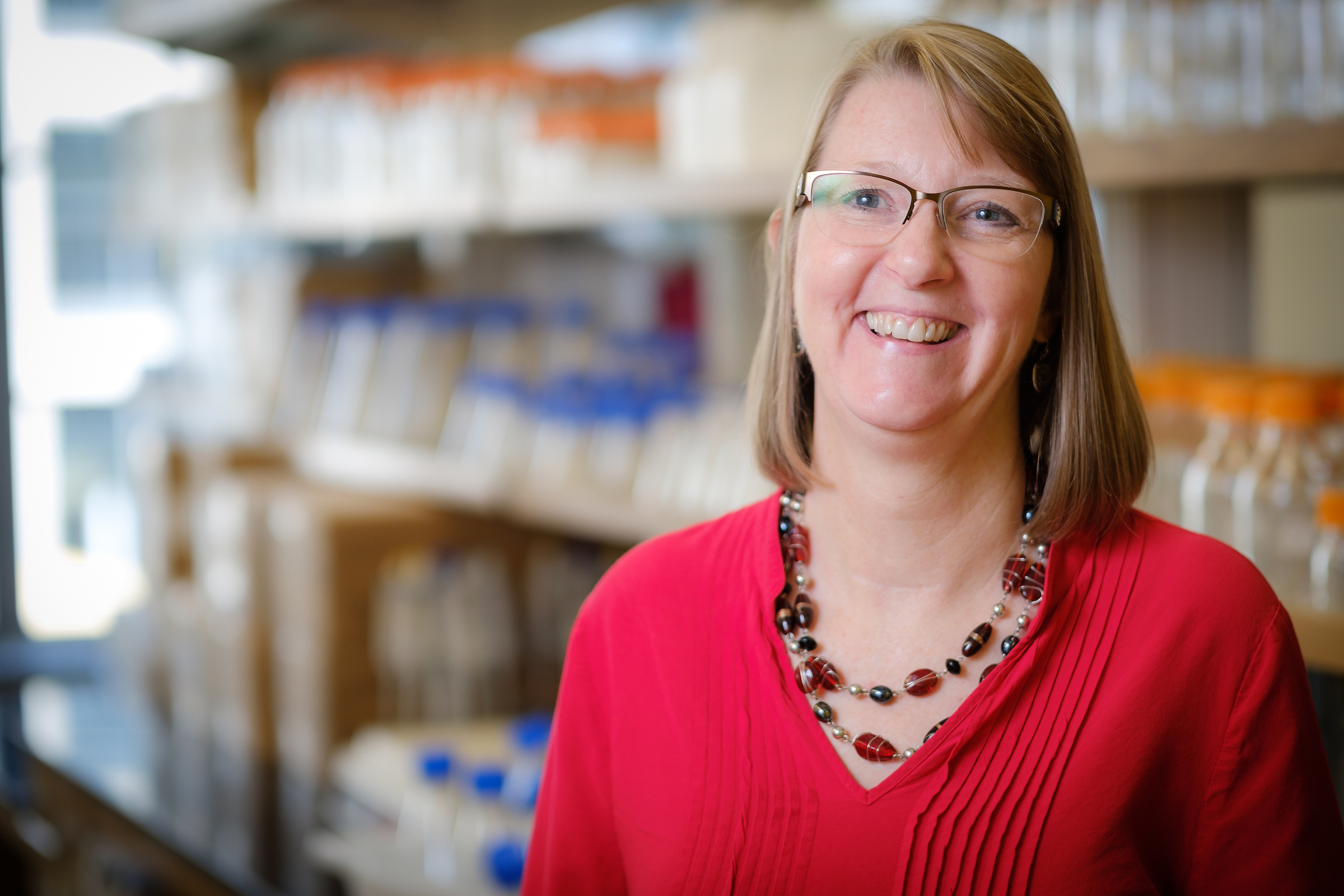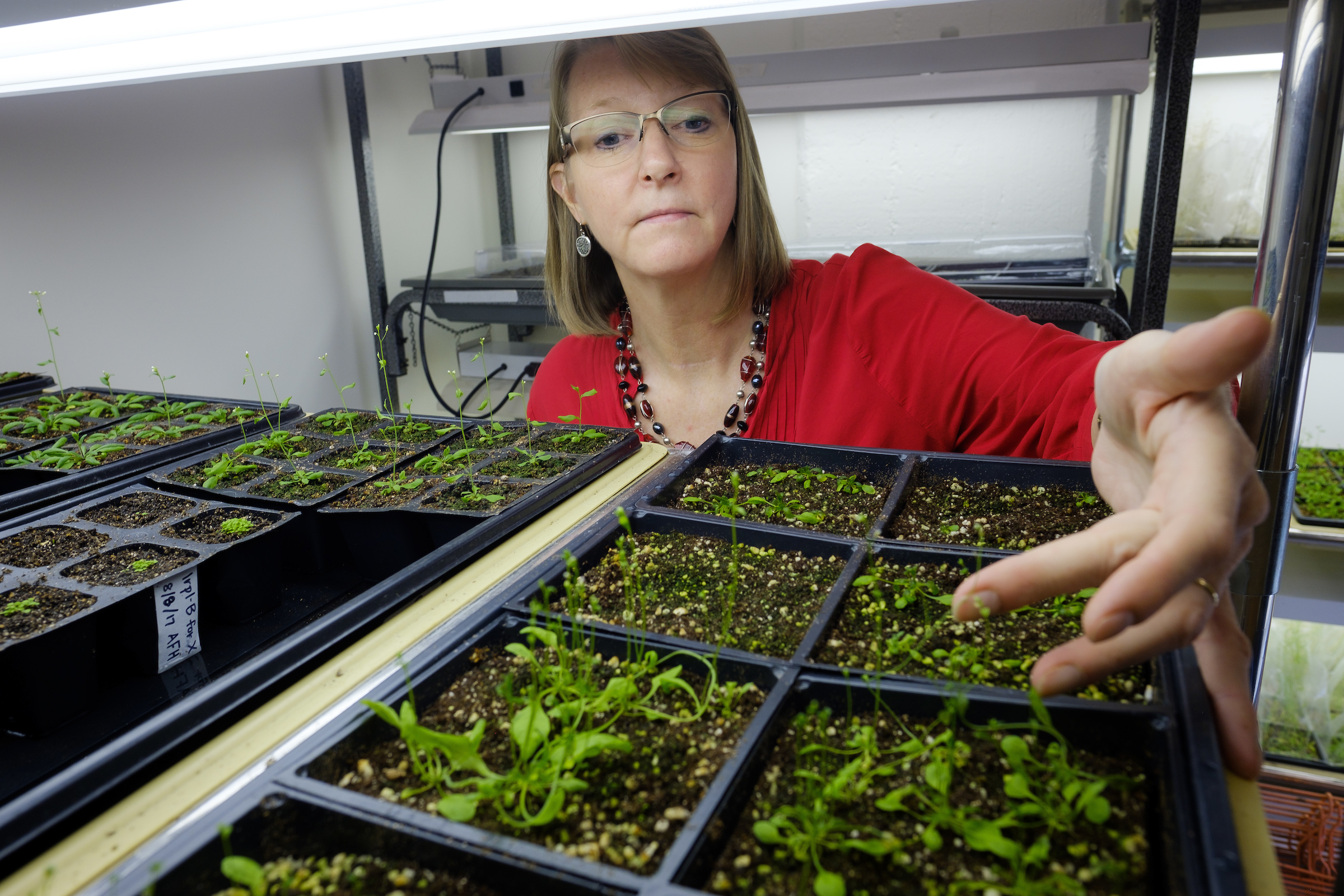Featured Faces of Wake Downtown Full Stories
Dr. Gloria Muday
Hometown: College Park, Maryland
Position: Coordinator of the Biochemistry and Molecular Biology Major, and Director of the Center for Molecular Signaling, as well as a Professor in Biology.
Research Focus: My laboratory is interested in the controls of plant growth and development. We study specialized plant metabolites, including anthocyanins that are purple pigments and their precursors, called flavonols. Flavonols and anthocyanins are potent antioxidants within the plant that defend plants from reactive oxygen species, which can be damaging and produce a stress response. Flavonols and anthocyanins also have beneficial health effects for humans who eat them, since they can act as antioxidants to protect us from oxidative stress. Our laboratory examines the way plants synthesize those molecules and how they affect plant development with studies in the lab examining root development, guard cells signaling to control stomatal opening, formation and structure of trichomes on the surface of leaves, how flavonols protect pollen from the damaging effect of high temperature , and in general how these compounds control development and protect plants from environmental stress. We also are interested in two plant hormones, ethylene and auxin (Yes, plants make their own hormones to control growth and development, just like mammals!). Ethylene is a gaseous hormone that makes fruit ripen, and auxin is a hormone that drives plant growth and division. Ethylene is a stress response hormone and auxin is a growth promoting hormone. We are asking questions about how these hormones turn on gene expression to drive developmental changes.
Favorite Thing about Wake Downtown: I love being at Downtown because the teaching and research space is designed very logically for the way we do science and learn science today. Large open labs are shared between groups that have common research interests, approaches, methods, and research equipment making it easy for faculty and students to interact with each other within labs and between labs. Another thing I love about Downtown is having access to great facilities for imaging. It is not something a biochemist is trained to love, but I find it is amazing to visualize biochemistry, molecular biology, and development within living organisms. It is also great to be down town in Innovation Quarter, as there are so many things that you can do here. I leave at the end of the day and think “We should get together and have a beer at one of the four microbreweries that I walk or drive by on the way home. Or We really need to go out and have some pizza!” There is just so much stuff happening nearby and it is fun to be in a place where you are connected with the community.
Additional Information: Sometimes people take plants for granted. They are beautiful, essential for our health and well being, and there are amazing questions you can ask to understand both how plants do their daily business, but also basic questions that you can explore in plants that apply to human biochemistry, development, and physiology.


